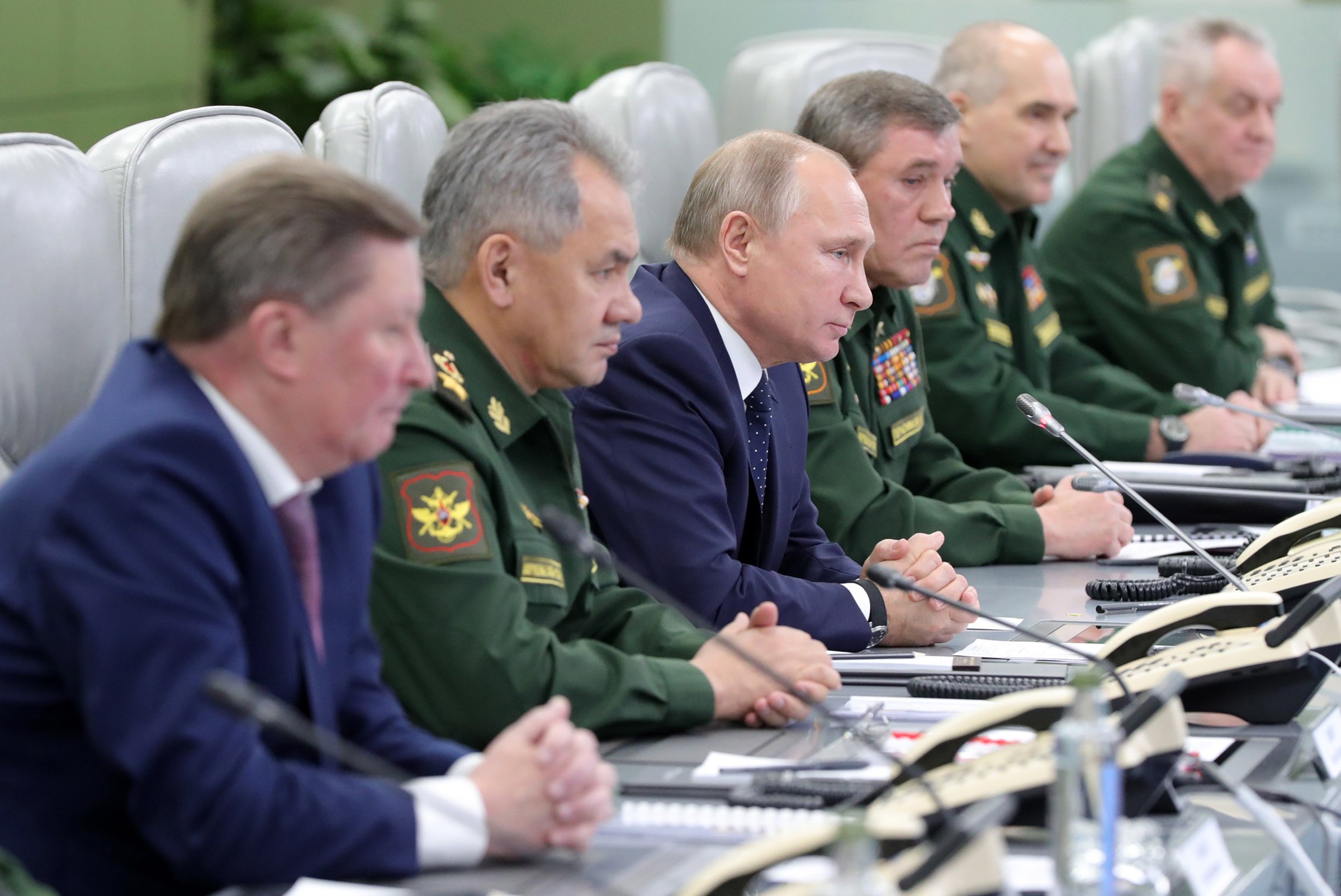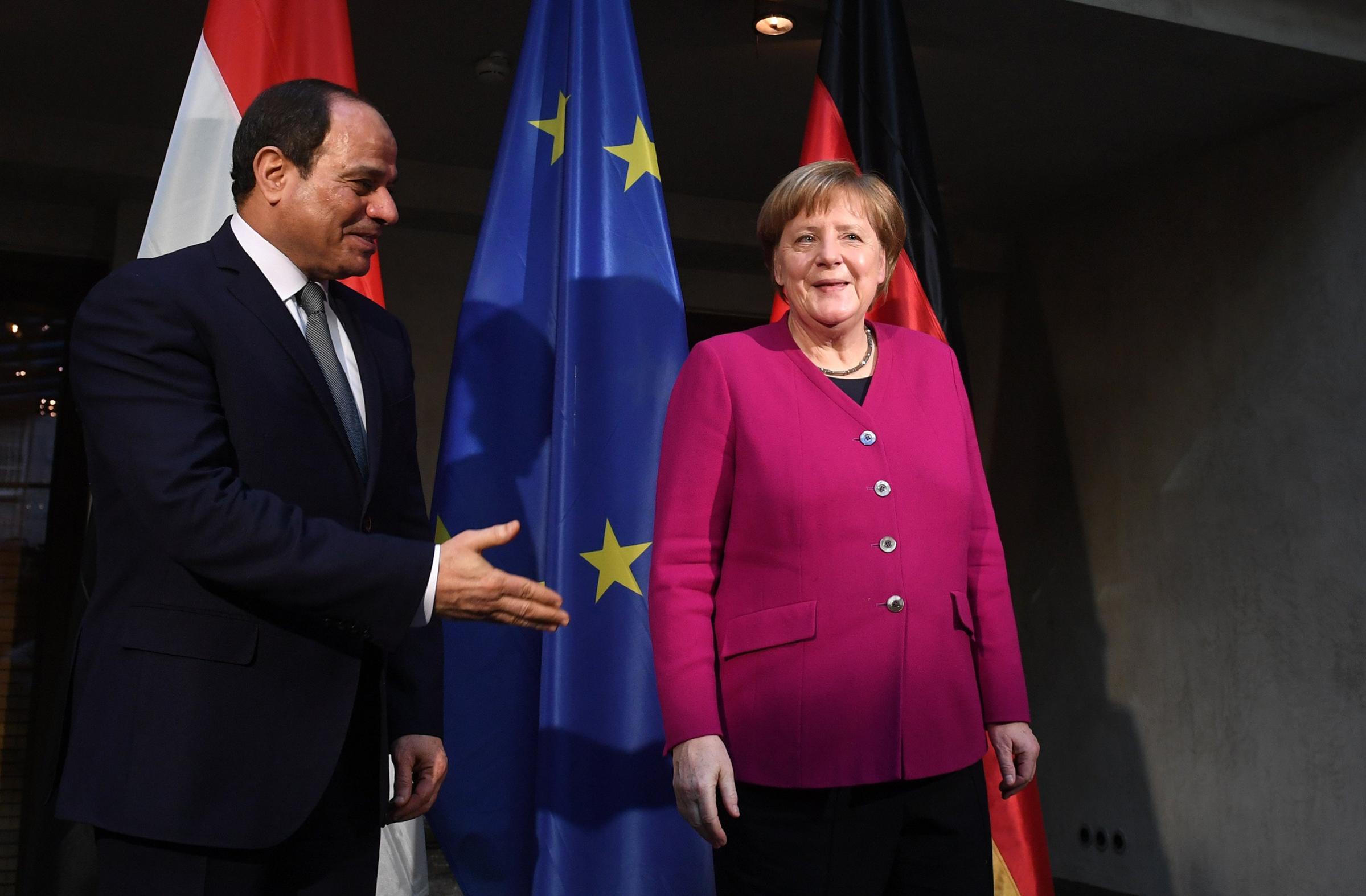
It’s been the stuff of nightmares ever since the Cold War: U.S. officers detect a Russian missile taking flight, and they have just a few minutes to counsel the President on how to react. Under the treaties that govern nuclear arms, those officers have the information they need to help make the right call–and to avoid such scenarios from arising in the first place. But these safeguards are now in jeopardy.
Two of the treaties that buttress the world’s post–Cold War security architecture–setting strict limits and enforcing transparency on both the U.S. and Russian arsenals–are in the process of unraveling. The Trump Administration said Feb. 1 that it would withdraw the U.S. from the Intermediate-Range Nuclear Forces (INF) Treaty, on the grounds that Russia had been violating it for years. In 2021, a separate treaty that governs long-range nuclear missiles, known as New Start, is due to expire. Renewing it would likely take years of talks. But so far, “we have not been offered any meaningful consultations,” Russian Foreign Minister Sergei Lavrov told an annual security summit on Feb. 16 in Munich. If talks don’t begin soon, most experts believe the treaty will lapse with nothing to replace it.
The unwinding of these agreements comes amid a global buildup of arms. The U.S. and Russia are racing to develop more compact and precision-guided nuclear missiles. China shows little interest in negotiating curbs on its own fast-advancing arsenal. And the Middle East is edging toward an arms race of its own, especially after the Trump Administration pulled out of a deal to stop Iran’s nuclear-weapons program last year. According to the analytics firm Jane’s by IHS Markit, arms spending in the Gulf has risen by 25% since 2013, to an estimated $103 billion this year.

But the shifting balance between nuclear states should be of most concern, says François Heisbourg, a military expert who served as an adviser to the French Defense Ministry during the Cold War. Without the rules of transparency written into the nuclear treaties between the U.S. and Russia, he says, both sides would become blind to each other’s nuclear arsenals. For military strategists, that has one disturbing consequence, Heisbourg says: “Treat every crisis as having full-blown nuclear potential.”
The world already has no shortage of crises with room for nuclear miscalculation, especially involving Russia. In the Middle East, Africa, Eastern Europe and even the Arctic, Russian forces are operating in close proximity to those of the U.S. and its allies. They sometimes clash, as when Turkey shot down a Russian fighter jet in 2015, or when Russian mercenaries attacked U.S. Marines last year near a gas plant in Syria.
What makes such skirmishes even more dangerous is the growing strength and reach of Russia’s military. In her forthcoming book on the subject, Bettina Renz, an associate professor at the University of Nottingham, concludes that Russia’s “stocks of weaponry have been comprehensively replenished” over the past decade or so. And on Feb. 20, in a major public address, Vladimir Putin made it clear the growth is unlikely to stop. The U.S. has the right to pull out of treaties, he warned, but “let them count the speed and the range of the weapons systems we are developing.”
During the Cold War, such threats from the East typically would have pushed the West to develop a joint response. That no longer seems to be the case. The loss of trust between the U.S. and Europe was especially palpable at this year’s Munich summit, a traditional show of mutual reassurance among NATO allies. In her speech to the summit, German Chancellor Angela Merkel complained that the U.S. decision to scrap the INF treaty was made without consulting Europe, even though the treaty concerns Europe’s security most of all. “We sit there in the middle with the result,” Merkel said. Minutes later, when Vice President Mike Pence delivered a greeting from his boss, President Donald Trump, the room full of European diplomats responded with stony silence.
Their chief concern at the summit, at least when it comes to nuclear security, was the U.S. move in May to pull out of the deal with Iran. That deal took nearly a decade to negotiate, and it committed the Islamic Republic in 2015 to halt its nuclear-weapons program. Yet despite U.S. intelligence agencies reporting the deal was working, the Trump Administration scrapped it, imposing new sanctions against Iran and pressuring European allies to do the same. Germany, France and the U.K. have so far refused.
“We are not on the same page with our allies on any of this,” says Ernest Moniz, the former U.S. Energy Secretary, who was one of the lead U.S. negotiators of the Iran deal. Along with 43 other diplomats and experts from the U.S., Russia and Europe, Moniz issued a statement on Feb. 14 calling for dialogue between the world’s nuclear powers. Among its appeals was for nations to “begin the process of rebuilding trust.”
That process was hard enough during the nuclear standoff of the Cold War. It’s even harder now that China, Saudi Arabia, the UAE and others are arming up. But without the trust to begin negotiations, the world’s system of nuclear checks and balances will continue unraveling, one treaty at a time.
More Must-Reads from TIME
- Cybersecurity Experts Are Sounding the Alarm on DOGE
- Meet the 2025 Women of the Year
- The Harsh Truth About Disability Inclusion
- Why Do More Young Adults Have Cancer?
- Colman Domingo Leads With Radical Love
- How to Get Better at Doing Things Alone
- Michelle Zauner Stares Down the Darkness
Contact us at letters@time.com